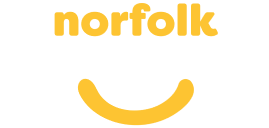How much foster carers earn
Foster carers receive fees and allowances for their time and skills, and the costs of caring for children.

It's important to understand the fees and allowances so you can make an informed decision about whether you can afford to foster. Foster carers can foster and work part time or full time - or make fostering their full-time career.
When you foster with us, you get a competitive weekly payment directly into your bank account. You only get paid when you have a foster child living with you.
In addition to our competitive fees and allowances, there are other financial benefits of fostering such as:
- No tax on the first £19,360 earned from fostering each year
- Tax relief for every week a child is in your care
- National Insurance Credits towards a state pension
All foster carers must register as self-employed within six months of starting to foster and file an annual tax return with HMRC.
GOV.UK explain more about tax arrangements for foster carers and registering as self-employed.
How it works with Norfolk County Council
Norfolk County Council pay you:
- Allowances - to help cover the costs of caring for a child or young person. This is for things like:
- Food
- Clothing
- Utility bills
- Transport
- Entertainment
- Out of school activities and pocket money
- Fees - to recognise your skills and the time needed to foster
How much you get depends on how old the foster child is and what their needs are. The weekly payment is made up of a basic maintenance allowance and either a standard, enhanced or complex fee. We decide whether you get a standard, enhanced or complex fee based on the child's needs and the skills required to care for them. The two amounts combined are the weekly payment each foster carer gets.
You can also claim expenses for things like school trips, birthday presents and glasses.
There are different fees and allowances for other types of foster care, such as supported lodgings and parent and child foster care. We will tell you about this in more detail during the assessment and approval process. We will also explain how we work out a child's needs.
There are other opportunities to earn more money once you've been fostering for a while. You could become a regional ambassador, be a panel representative or join a working group.
Our recruitment team can explain fees and allowances to you in more detail. They can help you to work out what your fostering finances might look like.
Example of what you could get paid
Below is a general summary of what the fees and allowances are for someone starting out in fostering. The amounts are the combined weekly sum including the valuing care assessment fee and the basic maintenance allowance:
Child aged 0-10 years old
- Standard weekly sum: £421
- Enhanced weekly sum: £537
- Complex weekly sum: £866
Child aged 11-17 years old
- Standard weekly sum: £485
- Enhanced weekly sum: £601
- Complex weekly sum: £930
All Norfolk County Council approved foster carers automatically become members of The Fostering Network. The Fostering Network run a range of webinars which cover the income tax scheme for foster carers, calculating your own tax threshold, self-assessment tax returns and National Insurance contributions.

Hear from our foster carers
Read about our foster carers, their experiences and the support they have received from Norfolk Fostering Service.
Fostering case studies (Go to Hear from our foster carers)





